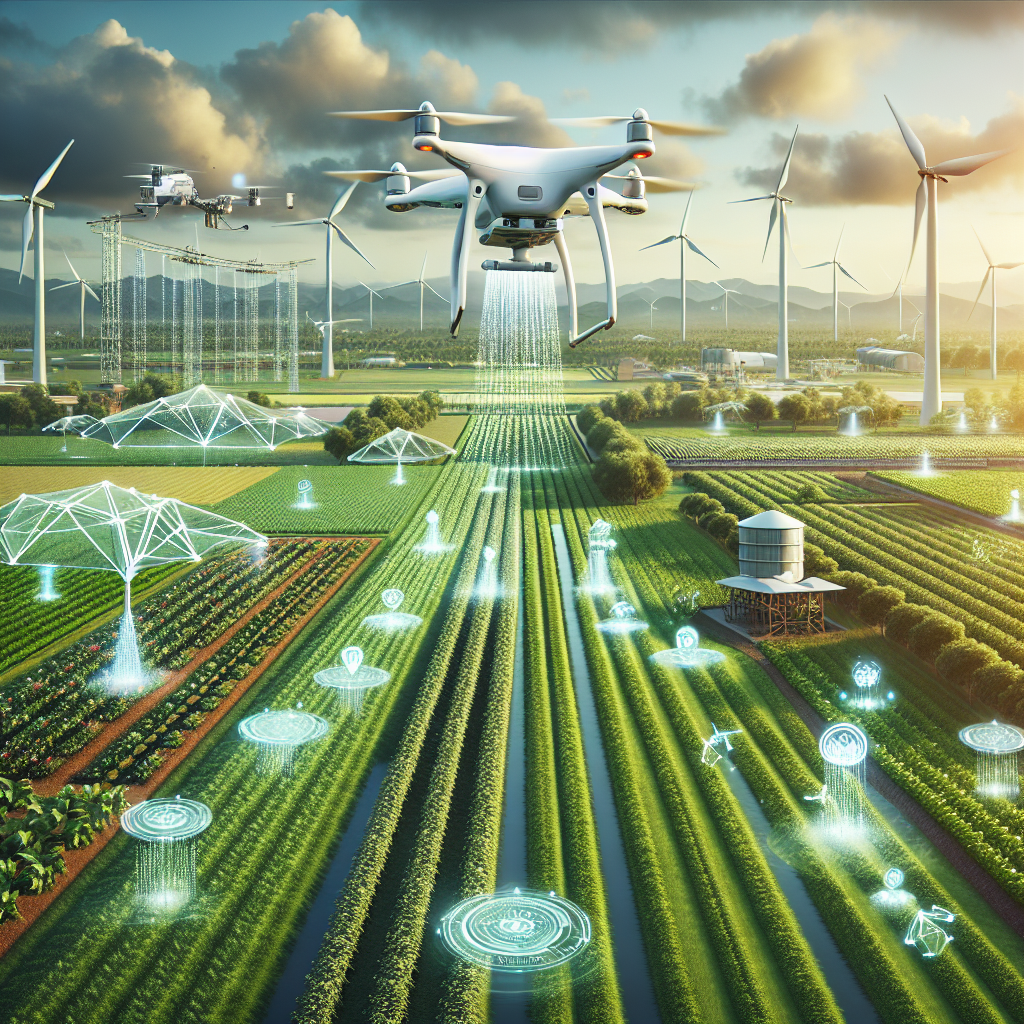In recent years, the use of Artificial Intelligence (AI) in agriculture has gained significant traction as a way to improve sustainability and efficiency in farming practices. AI technology has the potential to revolutionize the way we grow food, manage resources, and mitigate environmental impacts. By leveraging AI, farmers can make more informed decisions, optimize inputs, and increase crop yields while reducing the negative impact on the environment. In this article, we will explore how AI is being used in sustainable agriculture practices and the potential benefits it can bring to the industry.
One of the key advantages of AI in agriculture is its ability to analyze vast amounts of data quickly and accurately. By using AI algorithms, farmers can collect and process data from various sources such as weather patterns, soil conditions, crop health, and market trends to make informed decisions about their farming practices. For example, AI-powered drones and sensors can collect real-time data on crop health and moisture levels, allowing farmers to optimize irrigation and fertilization schedules to reduce water and chemical usage. This not only improves crop yields but also minimizes the environmental impact of farming practices.
Another way AI is being used in sustainable agriculture is through precision farming techniques. Precision farming involves using AI technology to create detailed maps of fields, identify areas with specific needs, and apply inputs such as fertilizers and pesticides only where they are needed. This targeted approach helps reduce waste, increase efficiency, and improve overall crop health. By using AI-powered tools such as automated tractors, drones, and robots, farmers can optimize planting, harvesting, and monitoring processes, leading to higher yields and reduced environmental impact.
AI is also being used to develop predictive models that can help farmers anticipate crop diseases, pests, and weather events. By analyzing historical data and using machine learning algorithms, AI can predict potential threats to crops and recommend preventive measures to mitigate risks. This proactive approach not only helps farmers protect their crops but also reduces the need for chemical pesticides and fungicides, leading to a more sustainable farming system.
Furthermore, AI technology is being used to improve livestock management practices. By using sensors and wearable devices, farmers can monitor the health and behavior of their animals in real-time, allowing them to detect signs of illness or distress early on. AI algorithms can analyze this data and provide insights to help farmers improve animal welfare, optimize feeding schedules, and reduce the environmental impact of livestock farming. By leveraging AI in livestock management, farmers can improve productivity, reduce disease outbreaks, and minimize the use of antibiotics and hormones.
In addition to its benefits for farmers, AI can also help consumers make more sustainable choices when it comes to food production. By using blockchain technology and AI-powered platforms, consumers can trace the origin of their food, verify its sustainability credentials, and make informed decisions about their purchases. This transparency in the food supply chain can help reduce food waste, support ethical farming practices, and promote a more sustainable food system.
Overall, the potential of AI in sustainable agriculture is vast, and its benefits are already being realized by farmers around the world. By leveraging AI technology, farmers can optimize their farming practices, increase productivity, reduce waste, and protect the environment. As the global population continues to grow, the importance of sustainable agriculture practices becomes even more critical, and AI can play a significant role in ensuring food security for future generations.
FAQs:
Q: How can AI help farmers reduce water usage in agriculture?
A: AI-powered tools such as sensors and drones can collect data on soil moisture levels, weather patterns, and crop health to optimize irrigation schedules and reduce water usage. By using AI algorithms to analyze this data, farmers can ensure that crops receive the right amount of water at the right time, leading to more efficient water usage and higher crop yields.
Q: Can AI help farmers reduce the use of chemical pesticides and fertilizers?
A: Yes, AI can help farmers reduce the use of chemical pesticides and fertilizers by using precision farming techniques. By creating detailed maps of fields and analyzing data on crop health, pests, and diseases, AI algorithms can recommend targeted applications of inputs only where they are needed. This reduces the overall use of chemicals, minimizes environmental impact, and improves crop health.
Q: How can AI improve livestock management practices?
A: AI can improve livestock management practices by using sensors and wearable devices to monitor the health and behavior of animals in real-time. By analyzing this data, AI algorithms can provide insights to help farmers optimize feeding schedules, detect signs of illness early on, and improve animal welfare. This proactive approach can help reduce disease outbreaks, improve productivity, and minimize the use of antibiotics and hormones in livestock farming.
Q: How can consumers benefit from AI in agriculture?
A: Consumers can benefit from AI in agriculture by using blockchain technology and AI-powered platforms to trace the origin of their food, verify its sustainability credentials, and make informed decisions about their purchases. This transparency in the food supply chain can help consumers support ethical farming practices, reduce food waste, and promote a more sustainable food system.

